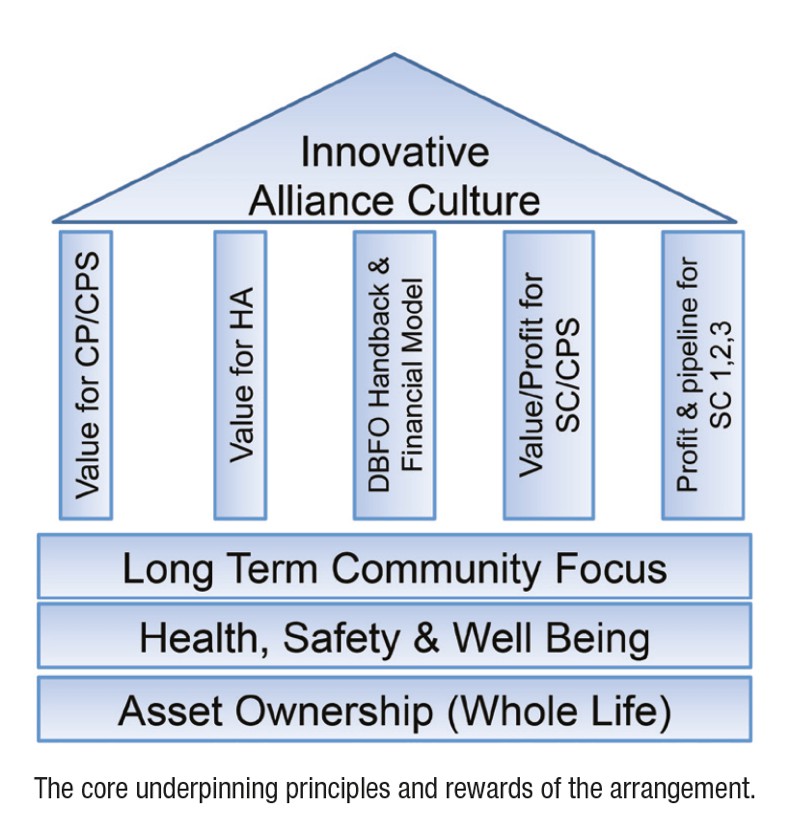A team from Jackson have transformed the delivery of multi-element joint replacement schemes by introducing Weekend Wonder-Shifts which have fast-tracked the project programme and designed out the need to install a temporary joint on the structure, delivering the schemes for 30% of their original predicted cost and with 10% of the person-hours compared to the original method.
Weekend Wonder-Shifts run from 10pm on Friday night to 5am on Monday morning enabling teams to work round the clock to for 55 hours straight. As anyone who works on the SRN will know, working windows pose a significant challenge for projects as a significant amount of time is lost during each shift to site mobilisation and demobilisation.
Working alongside joint suppliers Maurer, the team has successfully carried out two joint replacement schemes on the north and southbound slip roads of the M3/M25 interchange using two Weekend Wonder-Shifts, and 10 conventional week night shifts, saving approximately three months on the project programme, and saving £1.7m.
A conventional joint replacement scheme would ordinarily be carried out over a period of three months, using six longer Saturday night shifts which run from 8pm to 8am on Sunday, and then normal weeknight shifts, which run from 10pm to 5am, in between.
The problem with using this method and shift pattern on joint replacement schemes is that in order to remove the old joint, temporary ramps which act as temporary expansion joints have to be installed on the structure, enabling traffic to flow during the day. These ramps then have to be removed and replaced during each night shift to enable the removal of the old joint to progress. This, coupled with the traffic management installation and removal, means 2.5 hours on each 7 hour weeknight shift is lost to mobilisation and demobilisation, leaving only 4.5 hours for the team to get to work on the joint itself. Using weekend Wonder-Shifts, the need for several mobilisations is completely removed, and the requirement for the temporary ramps has been completely designed out.
Jackson’s Framework Manager Ryan Smith explains: “Productivity during the Weekend Wonder-Shifts is exceptionally high as they give us the opportunity to get the bulk of the removal and replacement of the joint done in one go. We split the weekend into six separate shifts, but without having to mobilise the site several times over, we’re effectively cramming almost 12 standard weeknight shifts into one.”
“In addition, our new method negates the requirement for the temporary ramps to be installed. This not only saved us a great deal of time in installation and removal, but also in terms of cost and, materials. Installation of the ramps increases the design approval process significantly, and in some instances, we have to strengthen the structure to accommodate the extra weight.”
Not all areas of the M25 network lend themselves to a full Wonder-shift closure due to diversion routes, and a great deal of planning is required to ensure they run smoothly, but where they are possible, this proven method should be considered as a first option. Less time spent out on the network means vastly reduced exposure for our workforce, far less disruption for Highways England customers, and greatly reduced project costs.
Key Achievements
- Scheme delivered for 30% of the cost of a conventional joint replacement scheme using the temporary expansion joint ramps. (which were previous best practice)
- Scheme delivered in 10% of the time compared to a conventional joint replacement project programme time
- Workforce exposure to love traffic dramatically reduced, and incidents involving Traffic Management Incursions, dangerous occurrences and near misses have been reduced to ZERO

